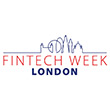Blockchain and Bitcoin round-up: 24 November 2017
That Friday feeling isn’t complete without another round of the latest blockchain and Bitcoin news! Following on from yesterday (23 November) our latest covers Globitex, Billon and Bitcoin Gold.
Starting with UK-based bitcoin exchange platform Globitex, which with its subsidiary NexPay UAB has been granted an electronic money institution (EMI) by the Bank of Lithuania to offer payment services and e-money issuance in the EU.
Globitex says the EMI licence brings the possibility of integrating the single euro payments area (SEPA) system directly through the Central Bank of Lithuania. This enables NexPay to clear euro payments directly, without the involvement of commercial banks, and to issue international bank account numbers (IBAN) to Globitex clients just like banks issue accounts to clients. The licence is also fully «passportable» allowing NexPay to provide clients with payment services and e-money issuance across all 28 EU countries.
A Polish fintech start-up, Billon, has revealed results of its test benchmark, proving its software can process currency payments at throughput rates of 130 million transactions per day. Billon says it proves its system can provide a credible alternative to the likes of Visa and MasterCard.
Developed over five years, its proprietary distributed ledger technology (DLT) can process and maintain payments on both a national and global scale. Capable of processing real currency without the use of miners or third party exchanges, it was achieved as part of a series of tests Billon is carrying out on a global cloud platform. Billon says it has begun licensing its technology and solutions to corporates and financial services institutions through its UK e-money subsidiary, Billon Financial.
Last week, the newest fork of the Bitcoin blockchain, Bitcoin Gold (BTG) officially went live and with that came another set of fraud risks. A recent wallet scam managed to net fraudsters with over $3.2 million in various tokens including Litecoin, Bitcoin and Ethereum.
According to reports, fake “mybtgwallet” sites were set up containing a BTG wallet encouraging users to upload their private keys to claim BTG. The sites have since have been taken down, but by then the damage had already been done. Bitcoin Gold has since issued a statement stating it’s carrying out an internal investigation and says to be vigilant and advises: “It’s worth reminding everyone that it will never be truly safe to enter your private key or mnemonic phrase for a pre-existing wallet into any online website”.












































